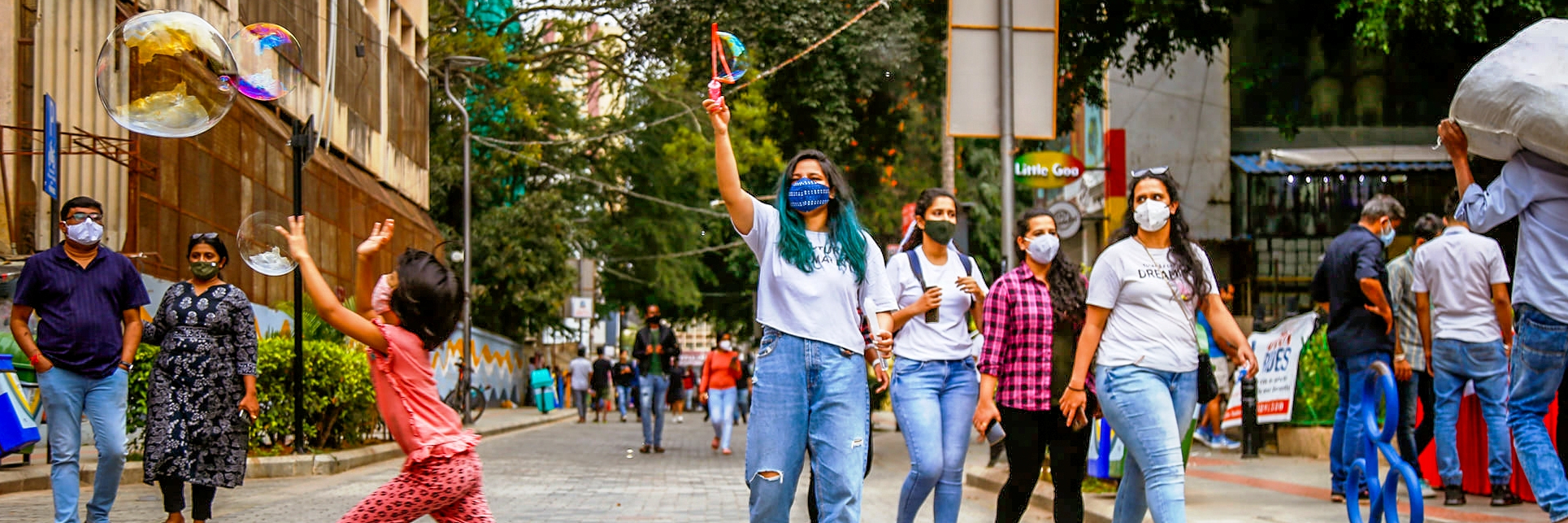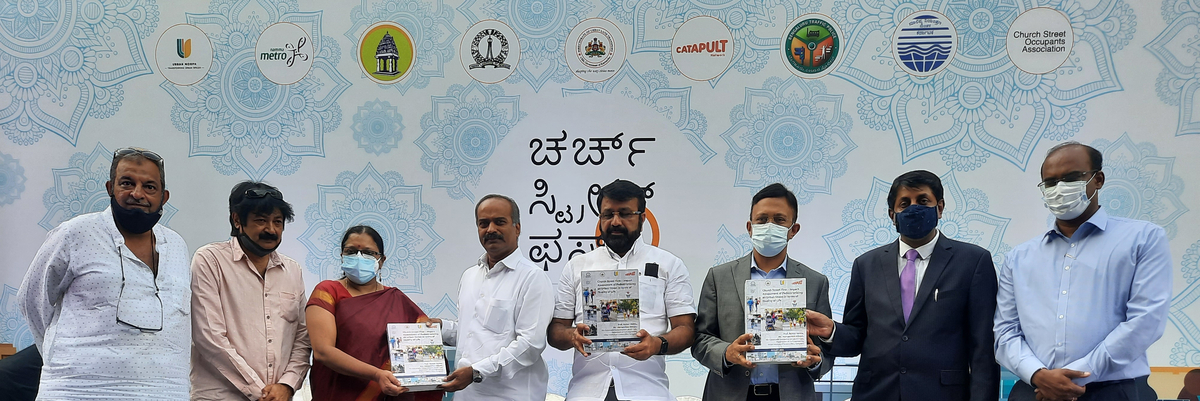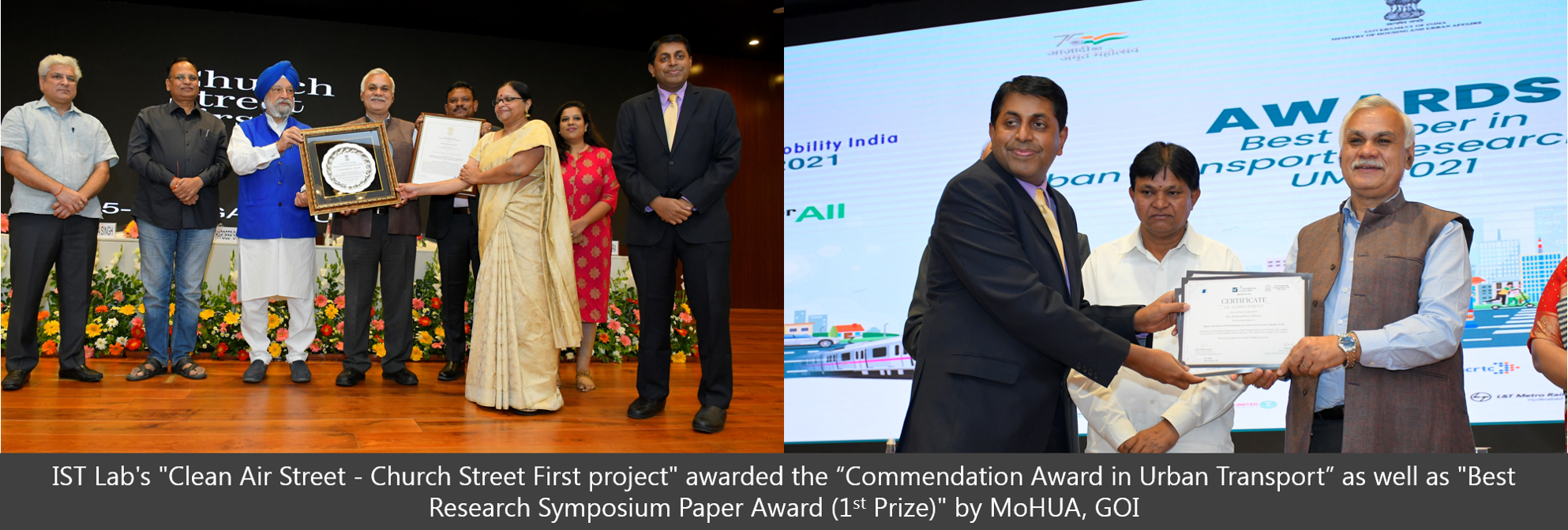Church Street First – Impact Assessment of Pedestrianizing an Urban Street in Terms of Quality of Life
Prepared by: IISc Sustainable Transportation Lab. (IST Lab.), Dept. of Civil Engg., IISc

Extensive dependence on motorised vehicles has resulted in externalities including traffic congestion, road accidents, difficulties for active transport (walking and bicycling), air pollution, and noise pollution, thus deteriorating one’s Quality of Life (QoL) and liveability of the city. In addition, the transportation sector has been identified as one of the major sources of air pollution that adversely impacts citizens’ health. Therefore, stakeholders and planners should focus on sustainable transport policy interventions considering a people-centric approach. Once such policy extensively considered in developed economies and now being explored by developing economies is ‘‘pedestrinizing urban streets”. Pedestrianization is essentially closing the road for traffic.

The Innovating for Clean Air (IfCA) programme is a joint initiative between India and the UK to pilot air quality improvement initiatives in Bengaluru. Under the Clean Air Street initiative, Church Street in Bengaluru was closed for vehicular traffic every Saturday and Sunday from 10:00 am to midnight for four months from 7 November 2020 to 28 February 2021. The Directorate of Urban Land Transport (DULT), Government of Karnataka, India, was the primary partner, along with IISc’s Sustainable Transportation lab (IST lab), Urban Morph, and Catapult UK, in implementing the Clean Air Street initiative. On 7 November 2020, Church Street First, under the Clean Air Street initiative, was inaugurated by the Hon’ble former Chief Minister of Karnataka, Shri BS Yediyurappa. On 24 September 2021 at 4 pm, the closing ceremony and release of the impact assessment report prepared by IST lab was held at Church Street, in the presence of Shri PC Mohan (Hon’ble Member of Parliament, Bengaluru Central), Shri NA Haris (Hon’ble Member of the Legislative Assembly from Shanthinagar Constituency, Bengaluru), Ms V Manjula (Commissioner, Directorate of Urban Land Transport), Shri Gaurav Gupta (Commissioner, Bruhat Bengaluru Mahanagara Palike), and several other dignitaries.

The focus of this study was to analyse the air quality and public opinion towards pedestrianizing an urban street. Both quantitative and qualitative studies were carried out to understand the impact of the initiative in terms of Quality of Life. From the results, it has been inferred that people were pleased about the initiative and suggested extending the pedestrianization beyond February 2021. The increase in pedestrian footfall during the months of the project duration indicates that more people became aware of the initiative, and of the fact that closing the road for traffic improves air quality and a pedestrian-friendly environment improves their QoL. The outcomes of these studies suggest the importance of pedestrian-only streets, which would help stakeholders in planning and executing such sustainable transport strategies.
Reference:
Verma A., Hemanthini AR. (2021), “Church Street First – Impact Assessment of Pedestrianizing an Urban Street in terms of Quality of Life”, Project Report, IISc Sustainable Transportation Lab (IST Lab), Indian Institute of Science, Bangalore, India.
IST Lab webpage: http://civil.iisc.ernet.in/~ashishv/beta/index.php






